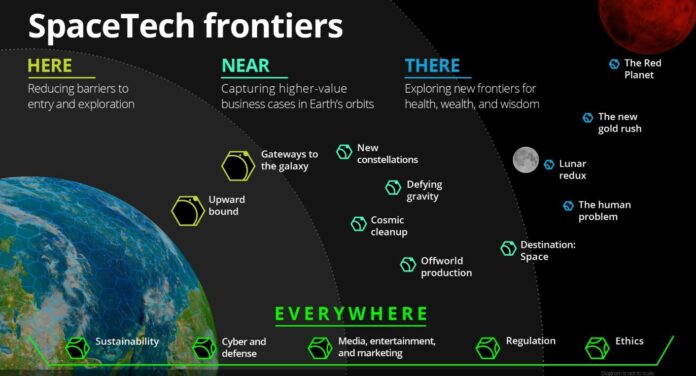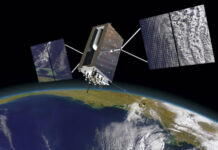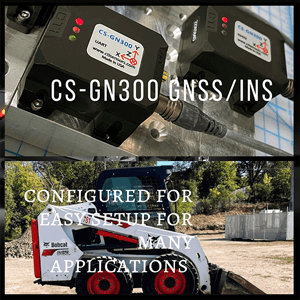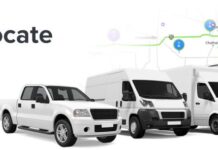But low-Earth orbit markets will be the hottest going forward…
Deloitte’s SpaceTech report, released June 14, says that GNSS, valued at more than $220 billion in 2021, is projected to reach $547 billion by 2031. The report said that as AI improves the capabilities of robotics and autonomous vehicles, associated devices will continue to use GNSS sensors as new use cases arise.
However, the report says the hot area in space is low Earth orbit (LEO) markets. LEO alone “could see an eightfold increase in today’s economic value by 2035 with the right investment and incentivization,” according to Deloitte.
Lower launch costs have led to a space “gold rush,” as corporations race to fill LEO with services, infrastructure, and research, the report said. Many companies are developing LEO systems and equipment to augment GPS and other GNSS for such commercial applications as autonomous vehicles, drone delivery services, critical infrastructure and other markets.

Deloitte said that Earth observation and remote sensing, which only accounts for 10 percent of the total space market share, will see growth to $8 billion by 2030 and $25 billion by 2040—up from the current $8 billion now. Deloitte sees high-quality images of the Earth important for such applications as supply chain, real-time precision tracking, navigation, traffic, weather, pollution, disease-spread, agriculture and mining to the drivers.
The report, which reviews the most active and growing space segments, says that space is no longer the exclusive domain of government agencies and private space companies. Such organizations as transportation, finance, manufacturing, pharmaceutical, research and communications that have never been viewed as space companies are viewing space as an opportunity for disruption.
In earlier Deloitte studies this year, the firm said that self-driving cars are another reason to put satellites into space as self-driving cars will never be a reality without good internet, said Massimiliano Ladovaz, OneWeb’s CTO. “Essentially, self-driving cars will be laptops on wheels,” he said.



























